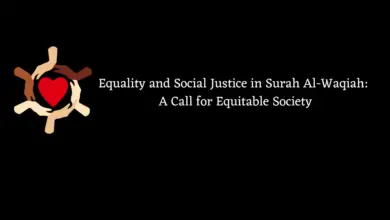The Meaning of the Five Pillars of Islam
Understanding the Foundations: The Five Pillars of Islam

The Meaning of the Five Pillars of Islam
The Importance of Namaz in Islam

Intoduction
Islam, one of the world’s major religions, is built upon a framework of principles and practices that guide the lives of its followers. At the heart of this framework lie the Five Pillars of Islam, five fundamental acts of worship and devotion that shape the beliefs and actions of Muslims worldwide. These pillars not only serve as a roadmap for leading a spiritually fulfilling life but also foster a sense of community and unity among believers. In this article, we delve into the profound meanings behind each of the Five Pillars and explore their significance in the lives of Muslims.
Shahada: The Declaration of Faith
The first and foremost Pillar of Islam is Shahada, the Declaration of Faith. It is a concise testimony that encapsulates the essence of Islamic belief: “There is no god but Allah, and Muhammad is His messenger.” This declaration serves as a foundation upon which the entire Islamic faith is built. It affirms the belief in the oneness of God (Tawhid) and the prophethood of Muhammad, who conveyed God’s final message to humanity through the Quran.
The Shahada reflects the monotheistic nature of Islam and emphasizes the rejection of any form of polytheism or idolatry. It serves as a constant reminder of God’s presence in every aspect of a Muslim’s life, encouraging a deep connection and reliance on Him. By professing the Shahada, a Muslim not only declares their faith but also commits to living a life in accordance with Islamic teachings.
Salah: The Ritual Prayer
Salah, the second Pillar of Islam, refers to the five daily prayers that Muslims are required to perform. These prayers are a direct link between the individual and the divine, offering a continuous connection to God throughout the day. The act of Salah involves physical movements and recitations of verses from the Quran, symbolizing humility, gratitude, and submission.
Each of the five daily prayers—Fajr, Dhuhr, Asr, Maghrib, and Isha—has its own significance and serves as a means of purifying the heart and mind. Salah is not merely a set of rituals; it is an opportunity for reflection, spiritual growth, and seeking God’s guidance. It reinforces the importance of maintaining mindfulness of God in the midst of worldly distractions and responsibilities.
Sawm: Fasting during Ramadan
Sawm, the third Pillar of Islam, entails fasting during the holy month of Ramadan. Muslims abstain from food, drink, and other physical needs from dawn until sunset as an act of self-discipline and devotion. Beyond the physical abstention, fasting also involves refraining from negative behaviors such as gossip, anger, and impatience.
Ramadan holds a special place in the hearts of Muslims as it commemorates the revelation of the Quran to Prophet Muhammad. Fasting during this month is a means of drawing closer to God, seeking forgiveness, and cultivating empathy for those less fortunate. It serves as a reminder of the blessings and sustenance provided by God and encourages gratitude and generosity.
Zakat: The Act of Charity
Zakat, the fourth Pillar of Islam, embodies the principle of social and economic justice. It is a mandatory form of charity aimed at redistributing wealth and ensuring the welfare of the less fortunate members of society. Muslims who possess a certain level of wealth are required to give a portion of it to those in need.
Zakat is more than a simple act of giving; it signifies a commitment to social responsibility and solidarity. It prevents the accumulation of wealth in the hands of a few and fosters an environment of compassion and support within the community. By fulfilling this obligation, Muslims acknowledge that their material wealth is ultimately a trust from God and should be shared with others.
Hajj: The Pilgrimage to Mecca
Hajj, the fifth Pillar of Islam, is a pilgrimage to the holy city of Mecca in Saudi Arabia that every financially and physically able Muslim is required to undertake at least once in their lifetime. This journey is a profound spiritual experience that brings together Muslims from all corners of the globe, regardless of their nationality or background.
Hajj symbolizes the unity of the Muslim community and serves as a reminder of the ultimate destination of every human being: the meeting with God on the Day of Judgment. The rituals of Hajj, such as circumambulating the Kaaba and standing in the plains of Arafat, hold deep symbolic meanings related to submission, sacrifice, and repentance. By participating in Hajj, Muslims detach from worldly pursuits, seeking purification and a renewed sense of purpose.
Conclusion
The Five Pillars of Islam represent the core beliefs and practices that define the lives of Muslims. These pillars establish a strong foundation of faith, morality, and community. Through the Shahada, Muslims declare their belief in the oneness of God and the prophethood of Muhammad. The daily prayers of Salah offer a continuous connection to God, while Sawm during Ramadan fosters self-discipline and empathy. Zakat emphasizes social responsibility and economic justice, and Hajj unites Muslims in a profound pilgrimage experience.
The Five Pillars collectively guide Muslims in their journey towards spiritual growth, self-improvement, and a deeper connection with God. These pillars are not merely rituals but serve as a comprehensive framework for leading a life rooted in faith and righteousness. By upholding these pillars, Muslims strive to embody the teachings of Islam in their everyday actions, fostering a sense of purpose, community, and devotion.
Faqs About The Meaning of the Five Pillars of Islam
What are the Five Pillars of Islam?
The Five Pillars of Islam are the fundamental acts of worship and practice that form the core of a Muslim’s faith and practice. They are: Shahada (Declaration of Faith), Salah (Prayer), Sawm (Fasting), Zakat (Charity), and Hajj (Pilgrimage).
What is the significance of the Shahada (Declaration of Faith)?
The Shahada is the testimony and declaration that there is no god but Allah, and Muhammad is His messenger. It’s the foundational statement of Islamic faith, signifying monotheism and the acceptance of Muhammad as the final prophet.
What is the importance of Salah (Prayer) in Islam?
Salah is the ritual prayer performed five times a day facing the Kaaba in Mecca. It’s a direct connection between the believer and Allah, serving as a way to maintain mindfulness, seek guidance, and seek forgiveness.
Why is Sawm (Fasting) observed during the month of Ramadan?
Sawm involves fasting from dawn until sunset during the month of Ramadan, refraining from food, drink, and other physical needs. It’s a time of spiritual reflection, self-discipline, and empathy for the less fortunate.
What is the concept of Zakat (Charity) in Islam?
Zakat is the obligatory giving of a portion (usually 2.5%) of one’s wealth and assets to those in need. It promotes social justice, wealth redistribution, and compassion for the disadvantaged.
Can you explain the significance of Hajj (Pilgrimage)?
Hajj is the pilgrimage to the holy city of Mecca, and it’s a mandatory duty for Muslims who are physically and financially able to undertake the journey. It symbolizes unity, humility, and equality among Muslims and commemorates the actions of Prophet Ibrahim and his family.
Are the Five Pillars the only important practices in Islam?
While the Five Pillars are fundamental, Islam encompasses a comprehensive way of life with many other important practices, such as seeking knowledge, maintaining good character, respecting parents, and performing additional acts of worship beyond the basic obligations.
Can someone be considered a Muslim if they don’t fulfill all Five Pillars?
The Five Pillars are considered essential tenets of Islam, and a person who consciously and willfully rejects or neglects them is not fulfilling the basic requirements of the faith. However, it’s important to recognize that individuals may have varying levels of commitment due to factors such as circumstances, understanding, and personal struggles.
Do the Five Pillars apply to all Muslims equally?
Yes, the Five Pillars are universal obligations for all Muslims, regardless of their nationality, ethnicity, or cultural background. They serve as a unifying force among the diverse Muslim community.
Can someone convert to Islam by simply adhering to the Five Pillars?
While the Five Pillars are essential components of Islam, conversion involves a genuine acceptance of the faith, belief in its teachings, and a commitment to live according to Islamic principles. Adhering to the Five Pillars is a part of this commitment, but a sincere belief in the core doctrines is also crucial for conversion.





